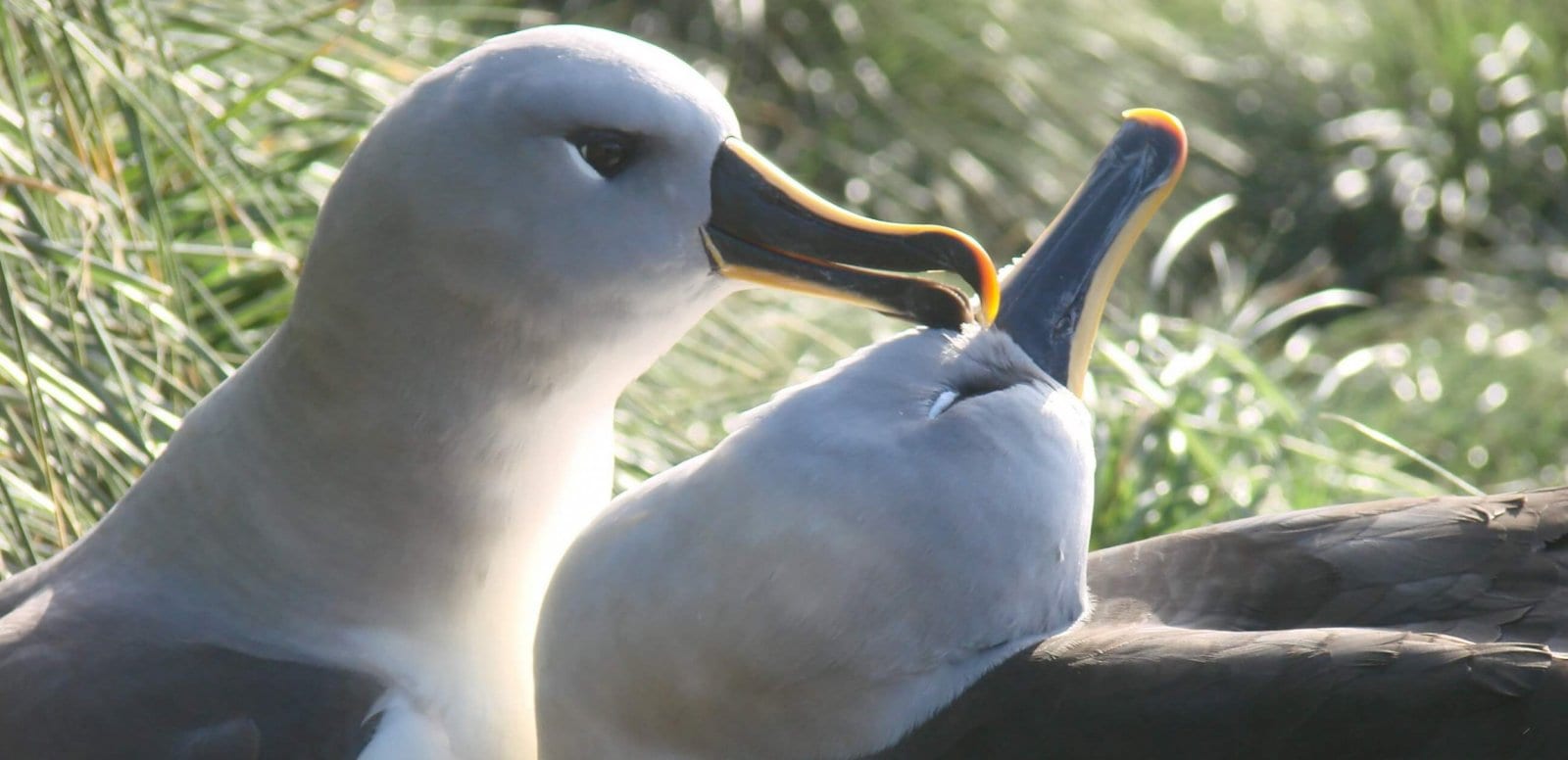Grey-headed Albatross pair at Diego Ramírez archipelago, Chile © Cristián G. Suazo
At the end of last month, the Chilean Government took a vital and welcome step towards saving thousands of seabirds from being needlessly killed in their trawl fisheries by introducing new regulations making the use of mitigation measures mandatory.
By Nina da Rocha
New regulations introduced by the Chilean Government at the end of August will require a number of important trawl fleets to implement measures that reduce the bycatch of seabirds. This includes not only the use of bird-scaring lines, which keep birds away from the trawl cables that can break their wings and kill them, but also other measures, including ‘snatch blocks’ to reduce the risk of albatrosses colliding with the net monitoring cable, and limits to the discarding of offal, which attracts birds to fishing vessels in the first place.
These regulations are the culmination of over a decade of work from our BirdLife International partners in the Albatross Task Force (ATF) team in Chile, who have worked alongside fishers, researchers and the national observer programmes of the Chilean Fisheries Development Institute (IFOP) and the Undersecretariat of Fisheries (SUBPESCA) to draw attention to the issue of seabird bycatch by testing and demonstrating the simple ways that these unnecessary deaths can be avoided.
“The announcement of these new regulations is wonderful news for the many albatrosses and petrels that use the seas around Chile to find food for themselves and their chicks,” Cristián Suazo, leader of ATF-Chile says. “This includes birds that breed both in our remote southern colonies and on the other side of the Pacific in New Zealand.”
IFOP researchers testing bird-scaring lines on a government research vessel © Nahuel Chavez
He also emphasised that it’s now important for these measures to be properly implemented across the fleets.
“The regulations say all the right things – now it’s time to ensure that these measures are in place and up to the necessary standard as soon as possible. The ATF team stand ready to assist and support industry to make that happen.”
This isn’t just an important landmark for our work in Chile, but for the ATF programme overall: this is the last of our original ten target fisheries to have bycatch regulations introduced, the fundamental foundation of long-term and sustained reductions in seabird bycatch.
“It will obviously be important that these regulations are matched with adequate monitoring and compliance efforts from the authorities,” says Rory Crawford, Bycatch Programme Manager for the BirdLife Marine Programme. “So far though, the signs are very good that this will be the case in Chile. We’d like to congratulate the Chilean Government for introducing these regulations and look forward to their monitoring showing that they have resulted in many more albatrosses continuing to soar over the oceans in years to come.”
BirdWatch Ireland would welcome similar measures in the European Union and Irish fishing fleet to reduce seabird bycatch and unnecessary seabird fatalities. To get more information on BirdLife International work visit the website by clicking the banner icon below.




